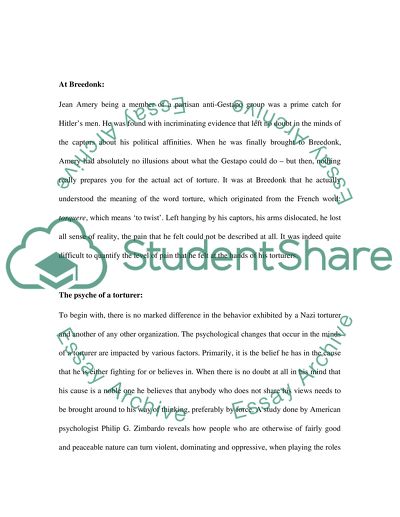Cite this document
(Horrible Impact of Nazi Concentration Camps Term Paper, n.d.)
Horrible Impact of Nazi Concentration Camps Term Paper. Retrieved from https://studentshare.org/history/1533023-the-verity-of-fear-and-pain
Horrible Impact of Nazi Concentration Camps Term Paper. Retrieved from https://studentshare.org/history/1533023-the-verity-of-fear-and-pain
(Horrible Impact of Nazi Concentration Camps Term Paper)
Horrible Impact of Nazi Concentration Camps Term Paper. https://studentshare.org/history/1533023-the-verity-of-fear-and-pain.
Horrible Impact of Nazi Concentration Camps Term Paper. https://studentshare.org/history/1533023-the-verity-of-fear-and-pain.
“Horrible Impact of Nazi Concentration Camps Term Paper”, n.d. https://studentshare.org/history/1533023-the-verity-of-fear-and-pain.


